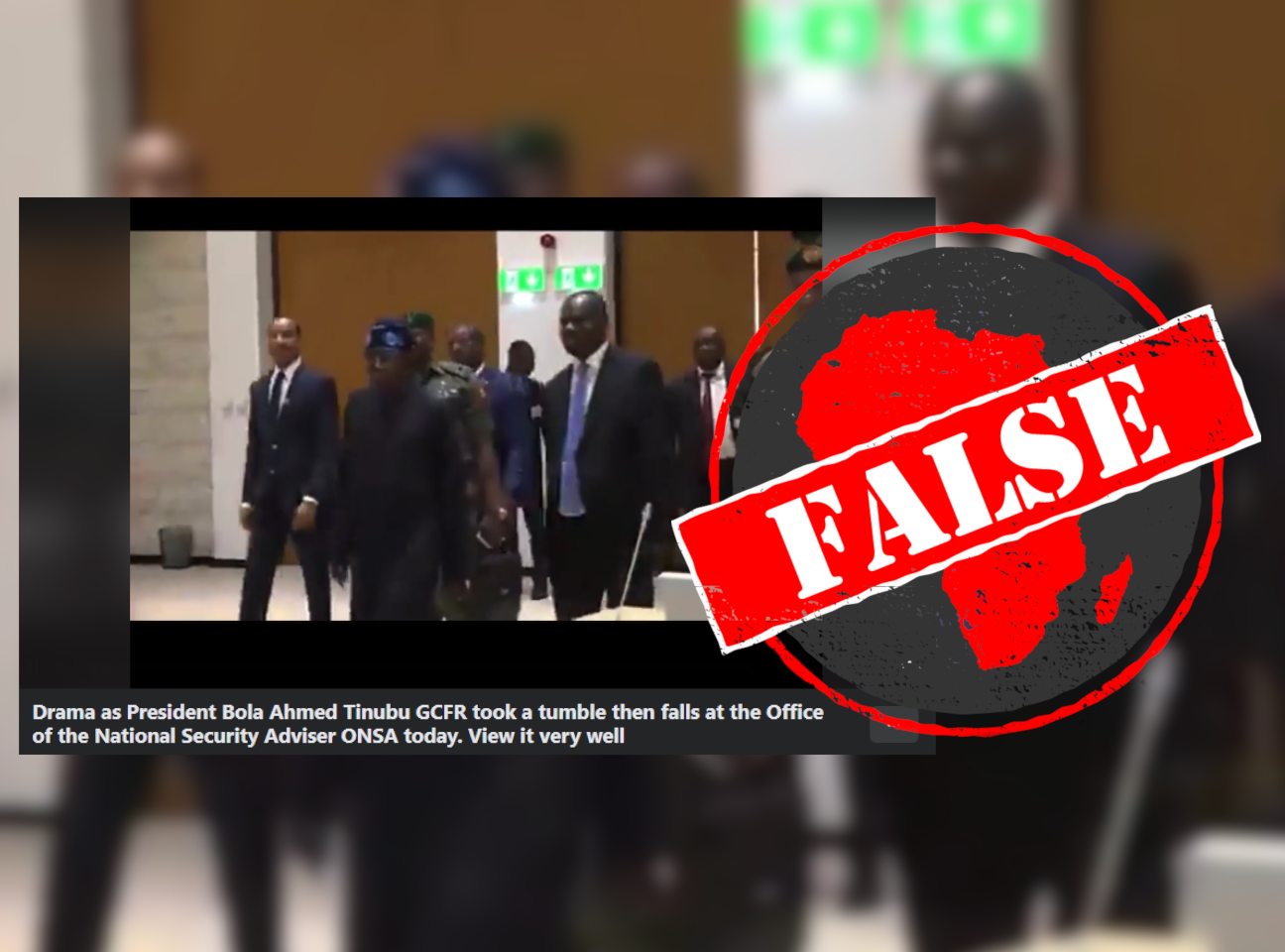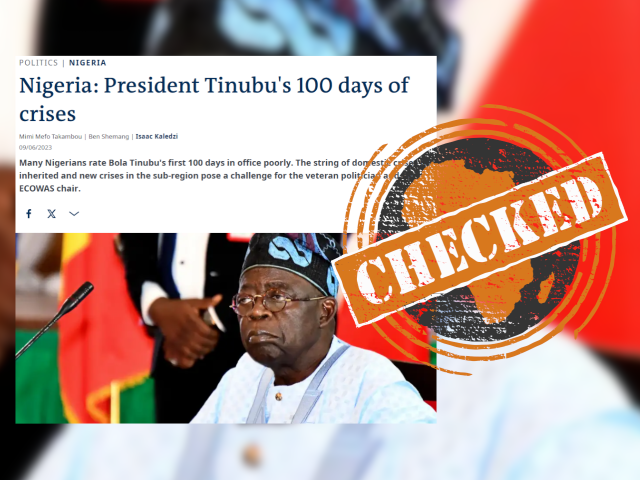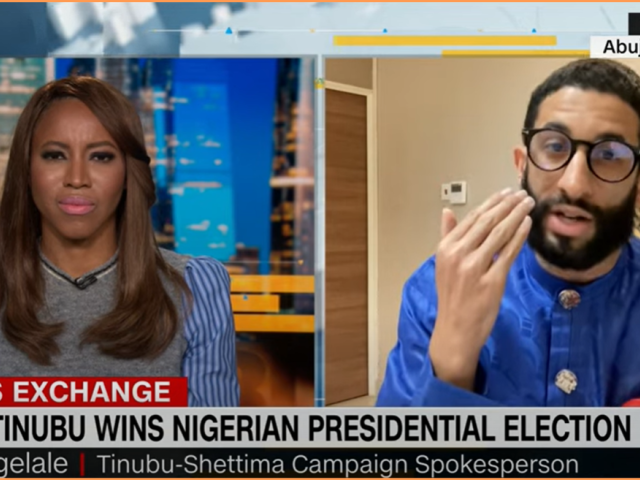IN SHORT: A claim that the president fell during a tour of the new national security adviser office is false. Even the video posted alongside this claim does not show him stumbling and falling at any point.
A post circulating on Facebook in Nigeria claims the country’s president, Bola Tinubu, fell during a tour of the new Office of National Security Adviser on 05 June 2023.
The office is located at the National Counter Terrorism Centre in the capital Abuja.
The post includes a video of Tinubu and his security entourage walking towards his seat.
It is captioned: “Drama as President Bola Ahmed Tinubu GCFR took a tumble then falls at the Office of the National Security Adviser ONSA today. View it very well.”
ONSA stands for Office of the National Security Adviser and GCFR stands for Grand Commander of the Order of the Federal Republic.
Tinubu was sworn in as Nigeria’s president on 29 May 2023. His health was a major concern during his campaign for leadership and he was often said to be unfit to rule.
The claim appeared elsewhere on Facebook here and here and on Twitter here.

No evidence Tinubu fell during the tour
The 18 seconds long video shared in the Facebook post does not show Tinubu falling or stumbling in any way.
A full video of Tinubu’s visit to ONSA, uploaded to YouTube by Lagos-based Channels Television, also shows no evidence of a fall.
There have also been no reports of a fall in the local media, which would have been the case if the claim was true.
Republish our content for free
For publishers: what to do if your post is rated false
A fact-checker has rated your Facebook or Instagram post as “false”, “altered”, “partly false” or “missing context”. This could have serious consequences. What do you do?
Click on our guide for the steps you should follow.
Publishers guideAfrica Check teams up with Facebook
Africa Check is a partner in Meta's third-party fact-checking programme to help stop the spread of false information on social media.
The content we rate as “false” will be downgraded on Facebook and Instagram. This means fewer people will see it.
You can also help identify false information on Facebook. This guide explains how.




Add new comment